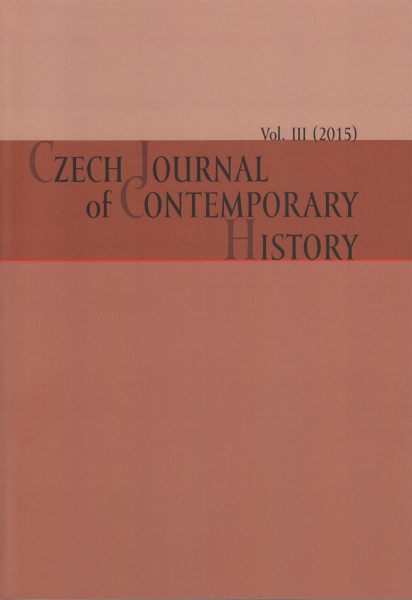Křesťan’s Nejedlý (With a Small Addition)
Křesťan’s Nejedlý (With a Small Addition)
Author(s): Petr ČornejSubject(s): Review
Published by: AV ČR - Akademie věd České republiky - Ústav pro soudobé dějiny
Summary/Abstract: Jiří Křesťan’s Zdeněk Nejedlý: Politik a vědec v osamění [Zdeněk Nejedlý: A Politicianand Scholar All Alone]. Praha – Litomyšl, Paseka, 2012, 569 pp. The author assesses Jiří Křesťan’s biography of Zdeněk Nejedlý (1878–1962), which won the prestigious Magnesia Litera prize in the category of non-fiction in 2013,as the most detailed, largest, factually reliable, and clearly the best biography of this figure of Czech history written so far. He points out some of the traditional legends, which Křesťan, thanks to his almost exhaustive and honest research, has been able to debunk. Křesťan offers an exceptionally thorough treatment of the subject, particularly Nejedlý’s fortunes in the first Czechoslovak Republic and, in a completely new way, his wartime exile in the Soviet Union. In his endeavor to be fair, however, Křesťan, according to Čornej, occasionally idealises Nejedlý andgoes too far in his Vorverständnis approach to the primary sources. Křesťan is chiefly interested in Nejedlý the citizen and politician, while leaving almost completely aside Nejedlý the historian and musicologist. To these aspects of Nejedlý’s work Čornej devotes a greater part of his article. He outlines the phases of Nejedlý’s career as a scholar and, for the period before the First World War, he emphasizes Nejedlý’s combining empirical-critical methods with psychological ones, as appears,among other places, in his works about Richard Wagner and Gustav Mahler. Čornejconsiders Nejedlý’s growing closer to the Communist Movement between the world wars and how this is reflected in his scholarly works after 1945, when Nejedlý began to hold high political office. Nejedlý’s efforts to link together historical and cultural models, based on the Czech National Revival of the 19th century, together with Stalinist Marxism did not, however, according to Čornej, seem either organic or convincing, and ultimately had only an insignificant impact on Czech historiography.
Journal: Czech Journal of Contemporary History
- Issue Year: III/2015
- Issue No: 3
- Page Range: 203-214
- Page Count: 12
- Language: English

